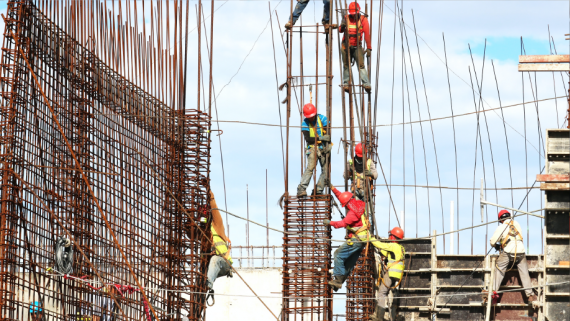MIRA’s Surprise Move on Non-Resident Contractor Withholding Tax
by Ali Muraadh
Background
The Income Tax Act1 (“ITA”) of the Maldives which came into force on 1 January 2020, introduced withholding tax on Non-resident Contractor (“NRC”) payments. All persons doing businesses in the Maldives are now required to deduct non-resident withholding tax (“NWT”) at the rate of 5% on payments made to NRCs. The deduction is to be made from the gross payments.
NRC has been defined in the ITA as any person (other than as an employee) that is not a tax resident of the Maldives but undertakes a contract, agreement or arrangement to perform services in the Maldives2.
The ITA also prescribes other types of payments (such as fees for technical services (“FTS”)) which are subject to NWT. Except for payments to NRCs, all other categorically identified types of payments made to non-residents are subject to NWT at the rate of 10%. As a result, the rules for deducting NWT becomes complicated where a contract includes mixed supplies with one of the components being a NRC payment.
The MIRA’s guidance on NRC payments in the past, has been that even if a wider contract for the supply of service in the Maldives includes material components, NWT must be charged at 5% on the material components as well. However, if such a contract includes any income that falls within any other category which is subject to NWT at 10%, such components will be taxed under that category.
Taxpayers have contended that such an interpretation of NRC rules is inconsistent and unfair. Such interpretation poses significant challenges to NRC contractors doing business in the Maldives, especially in situations where the contractor does not have a permanent establishment (“PE”) in the Maldives. Despite this, MIRA had maintained its stand in audits and dealings with taxpayers.
For example:
A company carrying on business in the Maldives contracts a resident company of the United States to undertake designing and construction of a tourist resort. The US company sends their employees to carry out the service contract in the Maldives.
When the aforementioned MIRA’s guidance is applied to the above case, the amount related to FTS has to be accounted as FTS and the applicable NWT rate would be 10%, while the amount related to the rest of the service contract including material component can be accounted as an NRC payment and the applicable NWT rate would be 5%.
A sudden change of interpretation?
Despite the past practice explained above, MIRA’s interpretation of the scope of NRC payments has now changed and is reflected in the updated Guide to non-resident withholding tax3 published on MIRA’s website . Under MIRA’s new interpretation, NWT under NRC category applies only on payments made to NRC for the services NRCs render and to the extent that those services are performed in the Maldives. This means that even if a mixed contract includes components (such as supply of materials) which are otherwise not subject to NWT, no withholding tax can be imposed on such components. NWT will only be imposed on the service components of the contract which are physically performed in the Maldives.
However, where such a contract includes any income that falls within any other category which is subject to NWT at 10%, such components will be taxed under that category.
For example:
Scenario 1: General construction contractor
A company enters into a contract with a Malaysian resident company to construct a building in the Maldives on a turnkey basis for USD20 million. This contract includes the following components:
- Supply of construction materials of the value USD10 million;
- Construction services physically supplied in the Maldives valued at USD8 million; and
- Provision of technical services such as designing and engineering of the value USD2 million.
According to MIRA’s previous interpretation and its new interpretation, NWT will be applied on the contract in the following manner.
| Details of the payment | NWT Rate & Category | |
| As per the previous interpretation | As per the new interpretation | |
| Construction materials amounting to USD10 million | 5% under NRC payments | Not subject to NWT |
| Construction services supplied in the Maldives amounting to USD 8 million | 5% under NRC payments | 5% under NRC payments |
| Technical service components amounting to USD 2 million | 10% under FTS | 10% under FTS |
Possible refunds
Due to this sudden shift in MIRA’s interpretation, you may be able to claim a refund if you have declared withholding tax on the material components or service components which were not performed in the Maldives (as long as the services are non-technical in nature). This, however, will be subject to return amendment rules under the ITA and whether MIRA has not finalised the audit of the relevant taxable period. In this regard, take note that:
- NWT returns can be amended before the expiry of 12 months from the due date for the submission of the respective NWT return4.
- The refund will be allowed to the taxpayer in situations where the NRC does not have a PE in the Maldives.
- In situations where the NRC has a PE in the Maldives, the excess tax withheld by the taxpayer can be claimed back by the PE by filing the final income tax return.
Conclusion
In light of the above, attention should be given to clearly determine the relevant breakdowns of the components covered under the agreement along with the value attributed to each supply during the contract negotiation stage. As in absence of such a detailed breakdown, it would be challenging to convince MIRA to reasonably apportion each contract between service components and material components should the taxpayer get selected for an NWT audit.



